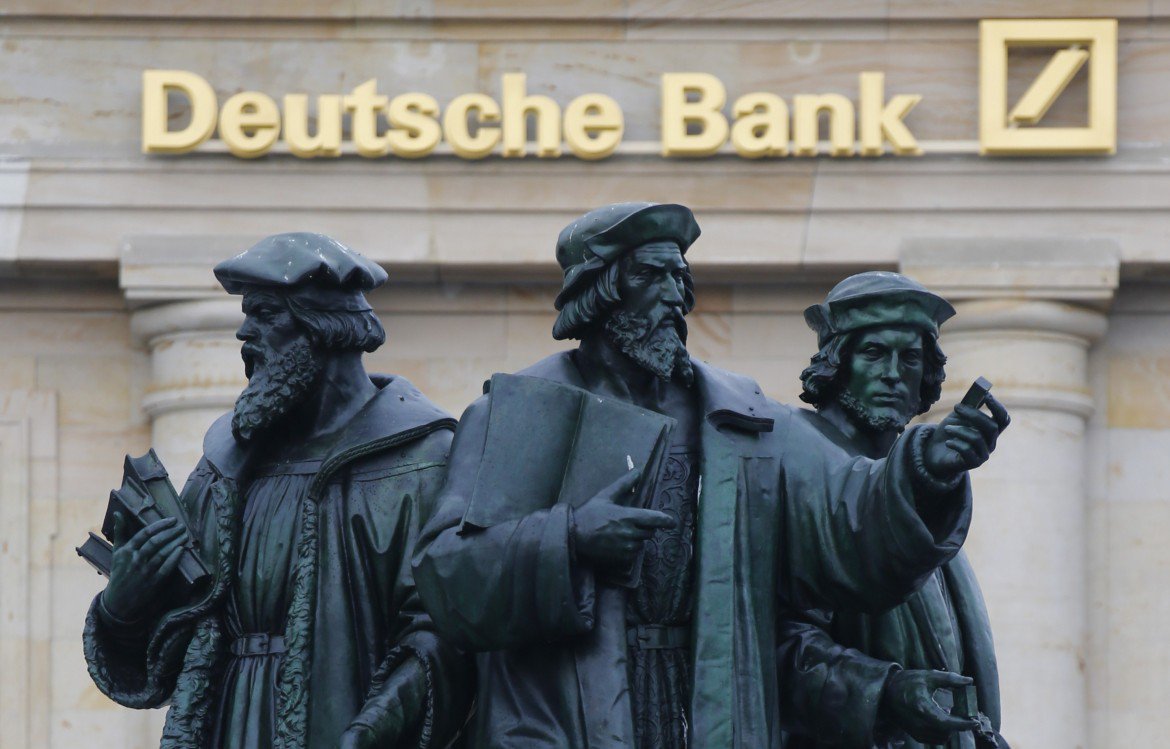Analysis
$14 billion fine puts Deutsche Bank in good company
But there’s speculation the steep penalty for irregularities may also be some form of revenge.

For Deutsche Bank, as for most of other large international banks, financial scandals are certainly unusual.
Less than a month ago, we reported on another scandal about a previous deal of this German institution: The SEC, the U.S. supervisory authority, fined the bank $55 million because it had presented a false position in its financial statements. The news caused uproar because, after the sentencing, the former SEC official who investigated the case had refused to collect the reward offered. It was his way of protesting the fact that only the bank would be punished and not the directors responsible for the crime; indeed the latter nurtured cordial relations with the SEC itself.
Other investigations around the world
On that occasion, we also recalled that the German bank had already been sentenced in 2015 to pay a fine of $2.5 billion. The bank was fined for collusion with other banking institutions to manipulate the LIBOR rate, the reference inter-bank interest rate calculated daily on the London market, which serves, among other things, as a basis for granting loans. We also note, if anything else need be added, that the bank is also subject to other investigations in different parts of the world.
After the outbreak of the 2008 crisis, politicians of various countries made several promises to regulate the sector. But since then, they have done very little to radically reform it. Instead, they have given the green light to the regulators, in particular the United States.
Since then, according to an approximate calculation, the large international banks have been sentenced to pay a total of roughly $250 billion into the coffers of the U.S. authorities. But, on the other hand, none of the responsible banking officers have had to pay any fines or go to jail.
Now, let’s focus on the specific issue.
The U.S. Department of Justice has asked the German bank to pay $14 billion for the irregularities committed before 2008 in the sale of mortgage-related sub-prime securities, like many other institutions did. When this was announced, the stock market obviously reacted badly and at the close of Friday’s trading session, the stock had lost 8.4 percent of its value. Let’s recall, however, that the bank has already lost about half of its value in the last year.
The bank stated that it would not accept such a high penalty and started negotiations to find an agreement, hopefully along the lines already established with other institutions. Goldman Sachs, which had been asked to pay $15 billion, had the fine reduced to about $5 billion. There’s always room for horse trading.
The list of institutions under investigation for the same offense is quite long. It includes: JPMorgan, Citigroup, Bank of America, Goldman Sachs, Morgan Stanley, the Royal Bank of Scotland, Credit Suisse, Barclays and UBS. We hope we did not leave anyone out.
This and the LIBOR case confirms that, as usual, a vast conspiracy perhaps existed (or perhaps still exists) or at the very least is tolerated by governments and regulators of all interested countries.
The factors that prompted the SEC to arrive at such a high figure are not known. You might suppose this is retaliation for the sentence against Apple by the European Union, as the Americans hinted at a few days ago, or rather, considering the Volkswagen case, a sort of blackmail to push the Germans to relent on the TTIP. Or maybe simply the upcoming presidential elections compel the SEC to be so strict.
Who knows? But something leaked: The German authorities are very angry.
Extreme weakness
What is certain is that Deutsche Bank has been in a situation of extreme weakness for a long time, like much of the German banking system, from the largest institutions to the smallest ones. A very heavy fine could put it in deeper waters.
It is widely known that the bank currently has on its balance sheet a series of derivative contracts, several of which could lead to substantial losses. Let’s remember that there were some operational contacts with our Monte dei Paschi on this subject.
Anyway, the bank’s 2015 profit and loss statement ended with a colossal loss, approximately €6.8 billion. But we are certain that the German government, when needed, will find ways to bring in funds to save the bank, bypassing Brussels rules one way or another.
Originally published at http://ilmanifesto.info/il-governo-usa-chiede-14-miliardi-di-dollari-per-irregolarita-a-deutsche-bank/ on 2016-09-17
